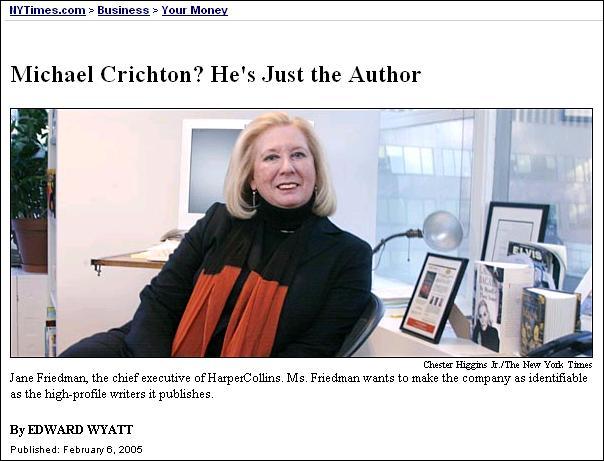|
If you lookup "Miss" in your favorite German/English dictionary, it will most likely tell you that in German, "Miss" translates to "Fräulein." Unfortunately, the dictionaries are hopelessly out of sync with reality. Look at the picture below. It depicts Ms. Friedman, CEO of HarperCollins, a seasoned executive hitting 60 these days.

Ms. Friedman, CEO of HarperCollins
In Germany, calling a woman "Fräulein" will only bring you contempt and an occassional pain in the crotch. "Fräulein" has come to mean that you are belitteling the woman so addressed, as if she wasn't a real "Frau", that is a woman, yet. It has nothing do with age or marital status, it is a pure expression of the woman's desire of liberation from traditional roles.
In the United States, it is quite the contrary. More and more women insist on being called "Miss", whether they are young or old, married or unmarried. Miss has come to mean young and attractive, whatever the reality. Those who ignore this are bound to hit a brick wall soon, as I had to learn the hard way.
Back in 2003, when I was organizing a private tour of the San Francisco Opera plus attendance of the show later that evening, I had to deal with one female administrator who certainly was a mature exemplar of our species. So I addressed her as "Mrs." only to find her putting one stupid road block after another into my way. However, when I switched from Mrs. to Ms. it was smooth sailing.
Another kind of Fräuleinwunder, I have to say, this time in reverse.
|